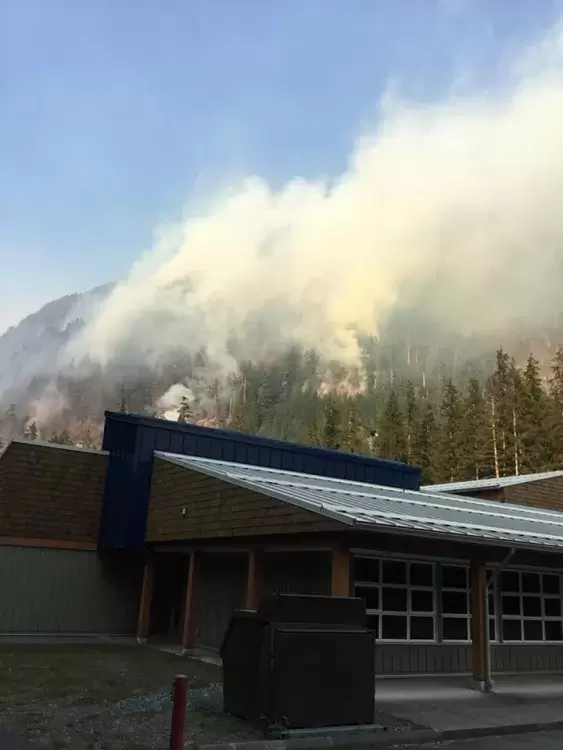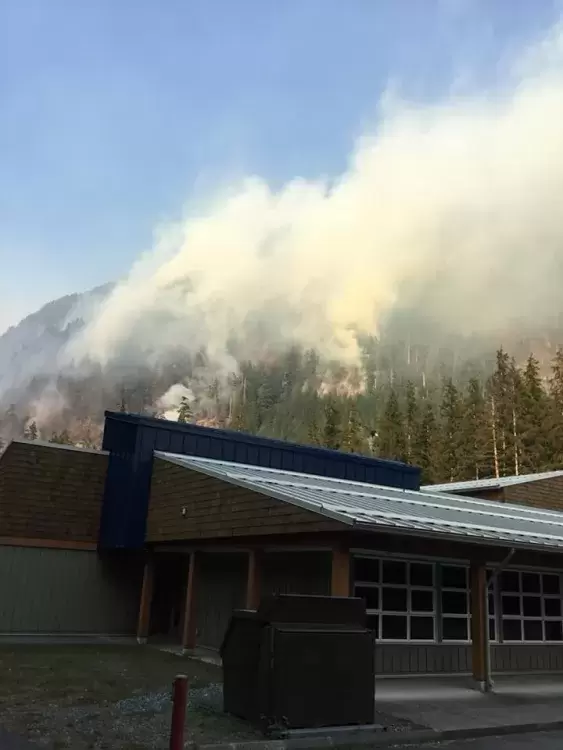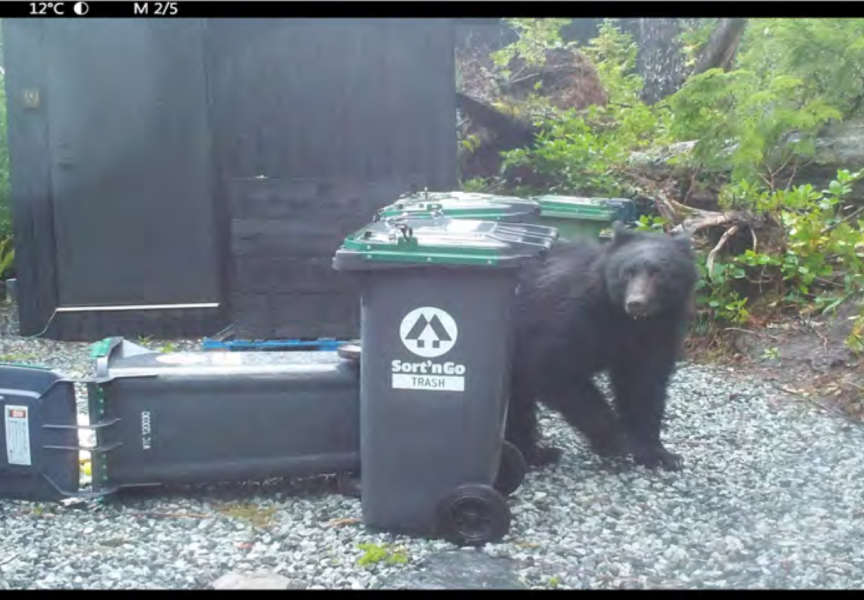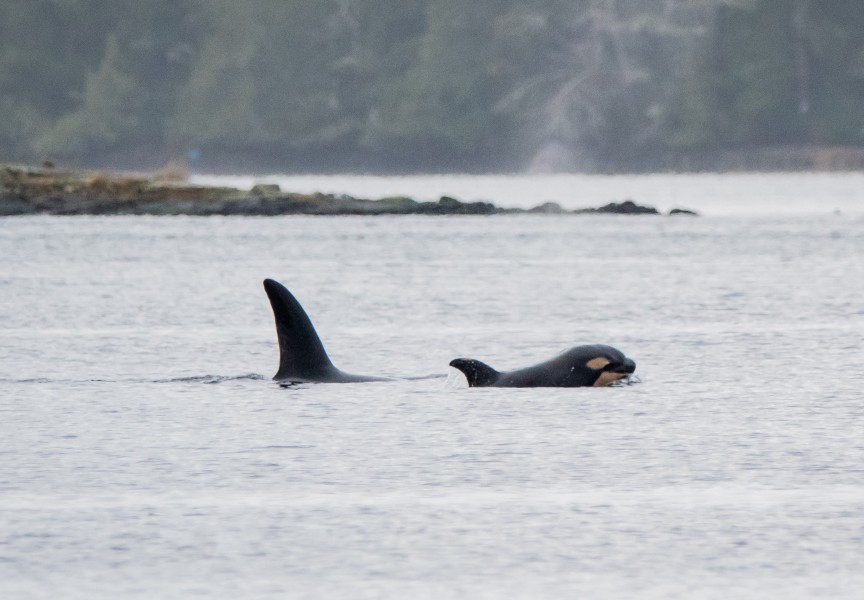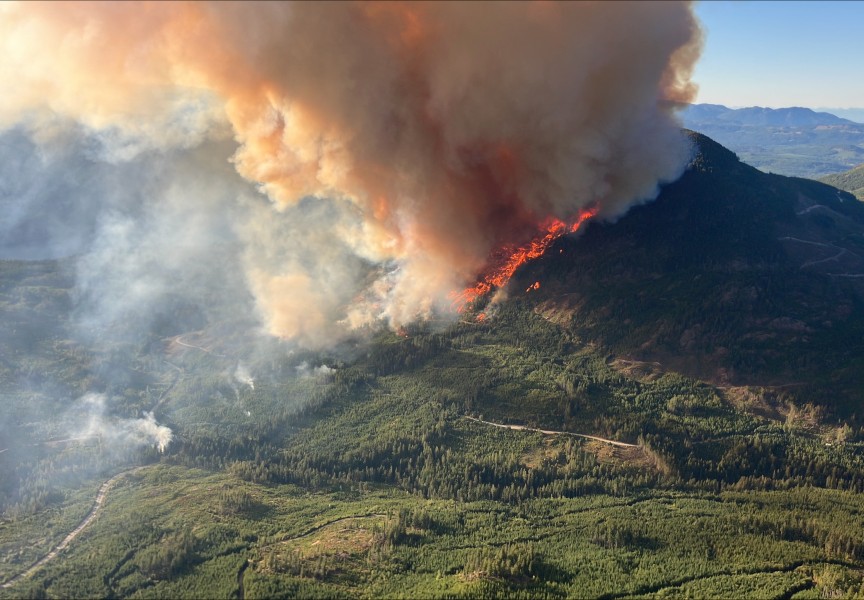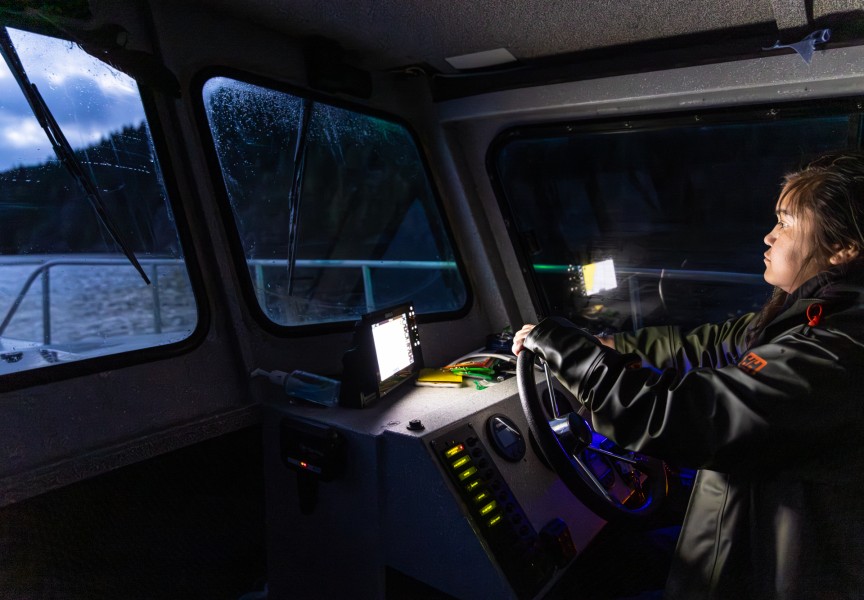After many parts of B.C. experienced record-breaking temperatures, a province-wide fire ban was implemented from June 30 through to Oct. 15.
Around 88 per cent of the 337 wildfires that occurred between April 1 and June 24 were caused by people, according to the Ministry of Forests, Lands, Natural Resource Operations and Rural Development.
Despite the fire ban, Timmy Masso said he has been “truly disgusted” to see the number of illegal campfires along the logging roads off Highway 4 leading to Winchie Creek Hydro.
At least once a week, Masso accompanies his father, Trent, to the Tla-o-qui-aht First Nation-owned hydropower facility. As the plant operator, Trent regularly monitors its operations.
Now, part of the job consists of picking up garbage, burnt firewood and extinguishing abandoned fires left behind by campers, said Masso. Some fires sit only five to 10 feet away from the bush, he added.
“So much of B.C. is on fire right now and I really don’t want that to happen to our west coast,” he said. “The abandoned fires could easily get out of hand and spread to the forest.”
Any local or tourist lighting fires at this time is “irresponsible,” said Masso.
“This is my territory and it’s my dad’s territory and we’re trying to keep it safe and keep it protected for future generations,” he added.
Last week, a wildfire near Zeballos prompted the Ehattesaht/Chinehkint First Nation to declare a state of emergency, which has since been rescinded.
The fire was reminiscent of a 2018 blaze that led to extended evacuation orders for the remote community.
During the night on June 29 and into the morning on June 30, a lightning storm passed through the North Island and mid-coast. In combination with fire reports, along with air and ground patrols by BC Wildfire Service personnel, eight fires were quickly confirmed and located, including one a few kilometres west of Zeballos, said Donna MacPherson, Coastal Fire Centre fire information officer.
“It was only because this fire was reported quickly and accurately that wildfire crews were able to jump on it and contain its spread before it could grow and threaten Ehatis,” read a statement by the Ehattesaht/Chinehkint chief and council.
Identifying a fire early on allows the Coastal Fire Centre to determine the location of the fire. It also allows staff to decipher what might have triggered the fire, said Macpherson.
“The [smoke] colour alone helps us understand what it is we're dealing with,” she said. “And often, the caller has some really good information about where it is and how the roads are – especially in the more remote areas.”
Access to fires in remote communities, like Ehatis, pose some challenges.
In this case, the only way to access the fire, which was burning at the base of a cliff, was through a deactivated logging road, described MacPherson.
It required the Zeballos fire chief to access an excavator and fill in the ditches to make the road passable, she said.
While it’s not unusual for fire crews to reconstruct de-activated logging roads, Macpherson said that “people living in remote areas are carrying a bigger burden than people who are in a fire department jurisdiction that have paved roads.”
On July 2, the Ministry of Public Safety and Solicitor General announced that Disaster Financial Assistance (DFA) is available for local governments and First Nations in regions that might have been impacted by the wildfires which began June 16, 2021.
“DFA is available to help community authorities cover disaster-related losses that are not covered by insurance, such as wildfire damage to public infrastructure – including roads, bridges and other publicly owned infrastructure,” read a release.
With over 200 wildfires burning in British Columbia, Macpherson said she is “urging” the public to report anyone breaking the open fire prohibition.
“Unfortunately, it seems to be some kind of entitlement that people have that they feel they can get away with stuff,” she said.
Currently fines of up to $1,150 can come to anyone found having an open fire, using fireworks, firecrackers, sky lanterns, burning barrels or using binary exploding targets. If a fire escapes and causes a wildfire, perpetrators may be fined anywhere from $100,000 to $1 million, and face a one-year prison sentence, according to the B.C. Wildfire Service.
As Masso continues to help his father monitor the Winchie Creek Hydro, he said he would keep watch of the surrounding backroads.
“These areas that we live in are so beautiful,” he said. “We do not need our west coast on fire.”
To report a wildfire, you can call: 1-800-663-5555

